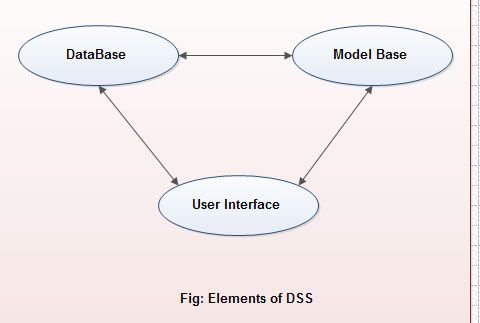The discipline of MIS can be categorized in the following 6 classes:
We’ll be covering the following topics in this tutorial:
Transaction Processing System
TPS processes transaction and produces reports. It represents the automation of the fundamental, routine processing used to support business operations. It does not provide any information to the user to his/her decision-making. TPS uses data and produces data as shown in the following diagram.

Previously, TPS was known as Management Information System. Prior to computers, data processing was performed manually or with simple machines. The domain of TPS is at the lowest level of the management hierarchy of an organization.
Management Information System (MIS)
MIS is an information system, which processes data and converts it into information. A management information system uses TPS for its data inputs. The information generated by the information system may be used for control of operations, strategic and long-range planning. Short-range planning, management control, and other managerial problem solving. It encompasses processing in support of a wide range of organizational functions & management processes. MIS is capable of providing analysis, planning & decision making support. The functional areas of a business may be marketing, production, human resource, finance and accounting.
Decision Support System (DSS)
A decision support system (DSS) is an information system application that assists decision-making. DSS tends to be used in planning, analyzing alternatives, and trial and error search for solution. The elements of the decision support system include a database, model base & software. The main application areas of DSS are Production, finance and marketing.

DSS can be differentiated from MIS on the basis of processing the information. MIS processes data to convert it into information. DSS processes information to support the decision making process of a manager.
Executive Support System (ESS)
Executive Support System (ESS) is an extension of the management information system, which is a special kind of DSS; An ESS is specially tailored for the use of chief executive of an organization to support his decision-making. It includes various types of decision-making but it is more specific and person oriented.
Office Automation Systems (OAS)
Office automation refers to the application of computes and communication technology to office functions. Office automation systems are meant to improve the productivity of managers at various levels of management of providing secretarial assistance and better communication facilities.
Office activities may be grouped under two classes, namely
i) Activities performed by clerical personnel (clerks, secretaries, typist, etc.,) and
ii) Activities performed by the executives (managers, engineers or other professionals like economist, researches etc.)
In the first category, the following is a list of activities.
a) Typing
b) Mailing
c) Scheduling of meetings and conferences,
d) Calendar keeping, and
e) Retrieving documents
The following is a list of activities in the second category (managerial category)
a) Conferencing.
b) Production of information (messages, memos, reports, etc.) and controlling performance
Business Expert Systems: These systems are one of the main types of knowledge-based information systems. These systems are based on artificial intelligence, and are advanced information systems. A business expert system is a knowledge based information system that uses its knowledge about a specific, complex application area to act as an expert. The main components of an expert system are:
a. Knowledge Base
b. Interface Engine
c. User Interface

 Dinesh Thakur holds an B.C.A, MCDBA, MCSD certifications. Dinesh authors the hugely popular
Dinesh Thakur holds an B.C.A, MCDBA, MCSD certifications. Dinesh authors the hugely popular